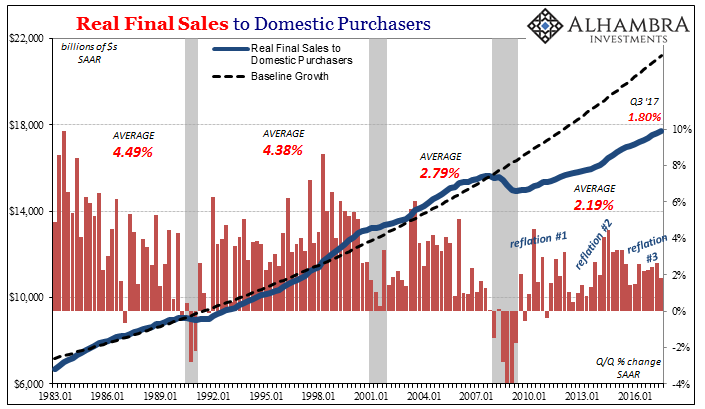There is no argument that the New Deal of the 1930’s completely changed the political situation in America, including the fundamental relationship of the government to its people. The way it came about was entirely familiar, a sense from among a large (enough) portion of the general population that the paradigm of the time no longer worked. It was only for whichever political party that spoke honestly to that predicament to obtain long-term political success.
It was perhaps easier to do so then, not least because the Great Depression was immediate and far too tangible. Whatever you might want to call whatever economic condition we have been in for the last decade, depression works for me as a more-than-temporary destructive economic deviation, it is of an almost hidden or obscured variety.


One big reason for that is Economists. Politicians don’t want to challenge them not because they have great expertise about an economy, any economy, but because they speak in a foreign language that to an outsider sounds scienc-ey. The political class fears challenging the unemployment rate, which Economists have held sacred, for how they might be embarrassed on what are really unrelated topics. The issue for Economists is a particular differential equation when for the rest of the world it is work, the tremendous lack of.
I really don’t understand why every D campaign message isn’t: More Jobs, Higher Wages and a Government that works for you. https://t.co/GBK3mMBFhj
— Chris Hayes (@chrislhayes) November 4, 2017
More and more, though, even the formerly recalcitrant unemployment rate adherents are starting to get it, and see it. It’s more than a little ironic that as the unemployment rate goes lower the easier it is to grasp. At now 4.1%, thanks to even more Americans falling out from its denominator, there is little left to argue about.


The evidence is really overwhelming. The BLS tracks separate data series (productivity) on wages and labor income apart from its monthly CES. From nominal Compensation per Hour to the Employment Cost Index to Unit Labor Costs, all of them are uniformly, authoritatively challenging the view of the labor market and economy presented by the unemployment rate.











Leave A Comment